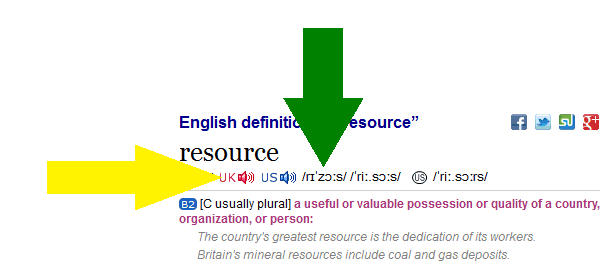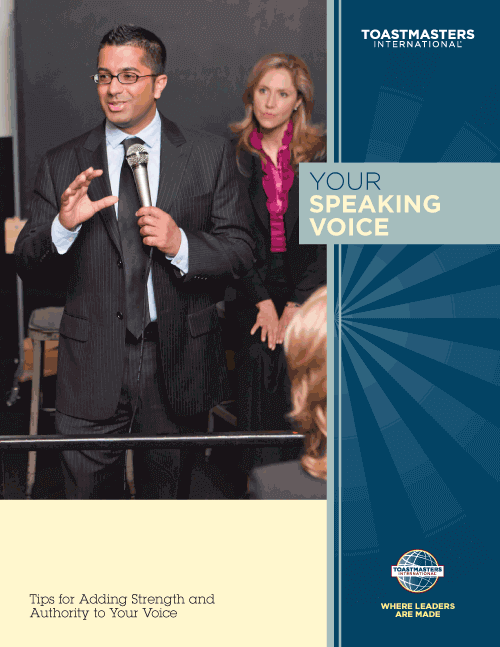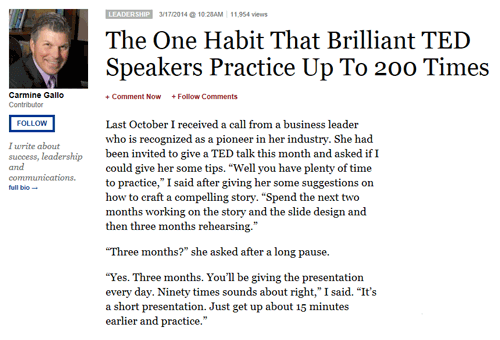It was 2 am and here I was, lying in bed awake, thinking about the presentation I had to make at 9 am.
I felt nervous. I wanted to sleep but I couldn’t.
My mind was obsessed with this presentation I had to make – it was my big opportunity to impress my European boss!
What could I do in my hotel room, waiting for the morning to come? Worry about the presentation? Agonize over the question session?
What would you have done? Have you ever felt like this?

It was useless to worry – instead, I decided to rehearse.
So, I closed my eyes and visualized the stage and the audience.
In the middle of the night I imagined myself as a great presenter, capturing everyone’s attention, and I commented all my slides, one by one.
After that I felt more relaxed and I rested.
The next morning I was anxious but calm. I gave my presentation and answered their questions to the best of my knowledge.
Why are we nervous about speaking in public?
I am sure that you too have felt nervous before making a presentation in English – we all do. So how do you handle your anxiety?
Speaking in public is not easy, and speaking in public in a foreign language makes it doubly challenging.
In this article we’re going to look at your fears and worries when you have to deliver a presentation or speech in English, and show you how you can overcome them.
When speaking to an audience in English, which of the following sound familiar?
- You’re embarrassed by your foreign accent
- You’re worried you won’t find the right words
- You’re afraid people will not understand your English
- You’re afraid your presentation will be boring because you speak slowly
- You’re not sure you will understand the audience’s questions
Let’s look at each one of these together and see how you can deal with them.
Fear # 1 – I’m embarrassed by my foreign accent
Many non-native speakers of English think that their level of English is not good simply because they don’t have a native speaker accent.
They are mistaken! A foreign accent is fine as long as the message is understandable.
In fact a light foreign accent can even be charming. Think of Juliette Binoche or Penelope Cruz acting in Hollywood movies, or of American actors such as Kevin Costner or Dustin Hoffman starring in Italian commercials:
What is important, however, is to pronounce some critical sounds properly. Here are some common mistakes that Italian learners of English make which get in the way of clear communication:
- Forgetting to pronounce the ‘h’ or adding unnecessary ones: for example ‘eat’ (mangiare in Italian) and ‘heat’ (calore), which mean very different things
- Mispronouncing short and long vowels: ‘sheep’ (pecora) has a long ‘i’ sound whereas ‘ship’ (nave) contains a short ‘i’.
If you want to improve your English pronunciation in general, don’t forget to check out our guide to pronunciation.
When you are preparing your presentation, ask a friend or colleague to listen to you and to pinpoint the words that are not pronounced well or not easily understood.
Then rehearse those words and sentences until they flow out naturally.
Remember that you can use online dictionaries to listen to the pronunciation of words.

If you practice regularly, even the hardest words will become easy to say.
Fear # 2 – I’m worried I won’t find the right words

True enough: stress impedes our thinking and prevents us from finding the right words.
However, this is also true for native speakers. To fight this problem, you need to prepare yourself thoroughly.
Under stress we all have a hard time finding the precise words we would like to say. Usually these words are not used very frequently, and so our brains have to work hard to retrieve them.
Remember that your brain is a network of interconnected neurons containing words and concepts, so the more often you access some specific neurons, the more accessible they become.
Consequently, if you use some words often, they will come to mind easily – even when you are under stress!
This means that you can fight the negative consequences of stress by preparing the vocabulary of your presentation in advance and by rehearsing it continuously.
During this preparation, pay special attention to the beginning of your presentation. Indeed, the first few minutes are vitally important: If you start off well, you will develop the rest of your topic with more ease and self-confidence.
To help you with specific vocabulary for each section of your presentation, we have created a collection of useful phrases for reference. You can download your free copy below:
Download the Presentations Phraselist
Finally, remember that words are important, but that the message comes first!
Making a good presentation means communicating your message, and you can use many different words. So if you can’t find that one specific term, don’t worry: just keep explaining your idea with alternative words.
Fear # 3 – Is everybody going to understand my English?
Good news: Being a native speaker of English does not guarantee that your presentation will be clear and understandable to all.
Check out the following video and you will soon realize that some British accents are barely understandable:
If you want to be understood by your audience, you obviously need to speak clear English (even with a foreign accent as we’ve seen in fear #1), but more importantly you need to:
- structure your presentation logically and
- use the right intonation.
Indeed a coherent structure will help listeners follow the flow of your presentation, while your intonation will keep your audience interested.
Let’s look at each of these 2 elements more closely:
Structure
When you are working on the structure of your speech, think first of the objective that you want to achieve. Do you wish to inform, to convince, to entertain or to inspire your audience?
Then divide your presentation in 3 parts: introduction, body, and conclusion.
In the introduction present the issue and the plan of the presentation. In the body develop the ideas or facts that you would like to communicate. In the conclusion repeat the important information and close the issue.
Repeating information will help your audience remember, so don’t be afraid of repeating the main points.
In other words tell your audience what you’re going to tell them; tell them; then tell them what you have told them.
Tell them what you’re going to tell them
Tell them
Tell them what you have told them.
If you would like to learn more about structuring your presentation, we have more advice here.
Intonation
Intonation is more important than you might think: without vocal variety a presentation very quickly becomes boring and listeners stop paying attention.

To capture attention your voice needs to be friendly and expressive.
Also, intonation adds meaning. Indeed the same sentence can take on very different meanings depending on the tone used.
Let’s take the sentence “I’m sure he’ll think of a better plan” as an example:
I’m sure he’ll think of a better plan = no word is stressed and this is a general statement
I’m sure he’ll think of a better plan = the word ‘better’ is stressed, meaning that the first plan he submitted was not very good
I’m sure he’ll think of a better plan = the pronoun ‘he’ is stressed, implying that I’m jealous of his ideas
I’m sure he’ll think of a better plan = the adjective ‘sure’ is stressed because I want to say that I have no doubts about it
To learn more about your voice and how to modulate it, you can check out a guide published by Toastmasters International, an organization that helps people improve their public speaking skills. Click to download your free copy:
To check if your voice is expressive and engaging, you can record or film your presentation and listen to it.
You will quickly spot the passages where your voice is dull or unpleasant. Then practice each passage while modulating the pitch and stress of sentences until your tone of voice makes your message interesting and clear to understand.
Fear # 4 – I’m afraid my presentation will be boring because I speak too slowly
Because English is not your native language, you speak more slowly. However, this weakness is also your strength because you need to speak more slowly when speaking in public.
Indeed the flow of words in a presentation cannot be the same as in a conversation because presentations contain a lot of new information that has to be digested by the audience.
Great speakers adjust the pace of their presentations to their audiences to be sure that they are understood. For example, when J.F. Kennedy addressed Berliners in 1963, he intentionally spoke slowly:
If you move too quickly from one idea to the next, your listeners won’t have enough time to understand, and in the end they will switch off.
So if you think your pace is too slow, it actually means that it is just right.
Moreover, like intonation, the right use of timing in your speech conveys meaning – pauses in a speech add emphasis.
For example, compare the following statement with and without any pauses:
“If all of us do our share, we will succeed!”
“If – pause – all of us – pause – do our share – pause – we will succeed!”
The second sentence clearly has more strength than the first one.
Fear # 5 – Will I understand the audience’s questions?

The question and answer session is often the biggest worry for non-native speakers of English. However, you can reduce the stress caused by this part of your presentation by following these recommendations.
First, since a presentation or speech is usually an event that you prepare in advance, you can anticipate possible questions.
Which parts of your presentation are most likely to be questioned?
Once you have identified the questions, you can prepare your answers.
Second, remember that you are an expert: if you are presenting a topic to an audience, it means that you know it well – or at least better than the others.
In other words, if you are confident about what you know, you don’t need to worry.
Thirdly, if you don’t understand a question, you can use some strategies to buy time.
For example, you can say, “Could you repeat, please? I couldn’t hear you” or you can ask, “What do you mean exactly?”. There are lots more useful phrases to deal with questions in the downloadable Presentations Phraselist mentioned above.
This way you have a second chance to hear the question and to think of an answer.
However, if you cannot answer the question, stay confident, write down the question, and say that you will look into the matter later.
And Finally
In conclusion you can overcome your fears of speaking in public and deliver awesome presentations in English. However, the critical factor is preparation.
Good presentations are not improvised, but carefully prepared.
Even the most natural-sounding speeches by native speakers have been rehearsed up to 200 times! That’s the advice that TED speakers receive – practice your presentation every day until the D-day:
Let’s summarize. Speaking publicly in English makes us all nervous, but remember that:
- Your foreign accent is fine as long as you avoid serious pronunciation mistakes
- You will find the right words if you have rehearsed the presentation
- Your presentation will be clear if you have built a logical structure and if you add intonation
- Your slower pace in English is perfect for public speaking, and pauses are welcome
- You can anticipate questions and prepare answers to them
One final thought: when you practice your presentation, you build up your self-confidence, and self-confidence is the key to a successful presentation. It is a virtuous circle.

So, how many times will you practice your next presentation?
Has this article helped you? Let me know in the comments below – I look forward to reading them.


